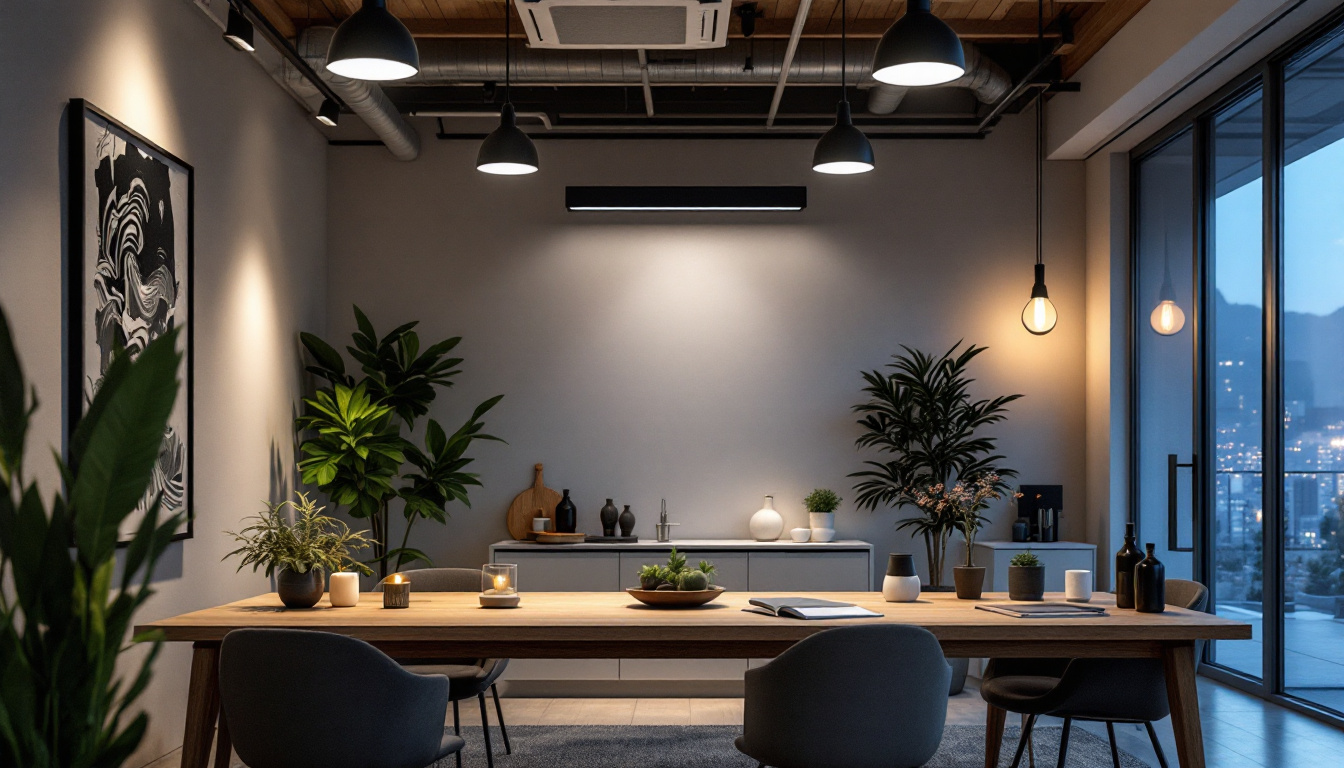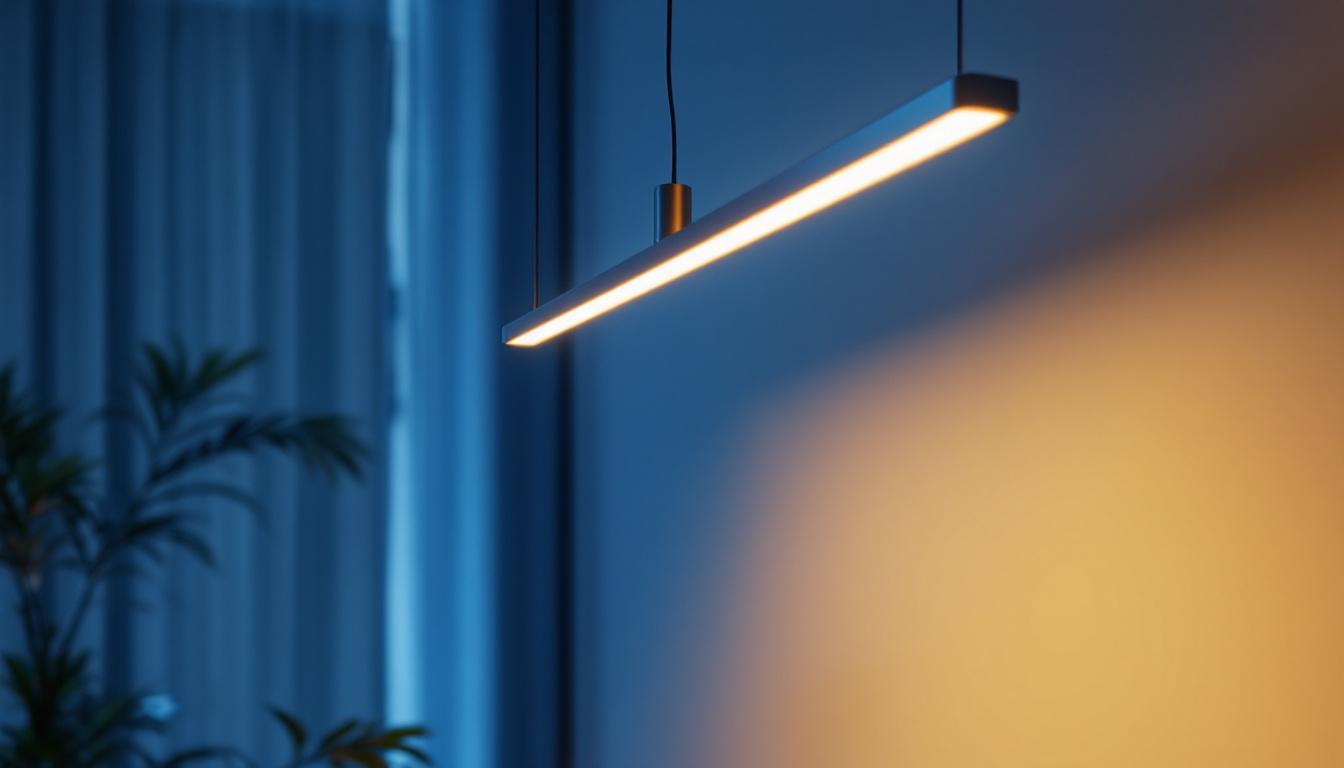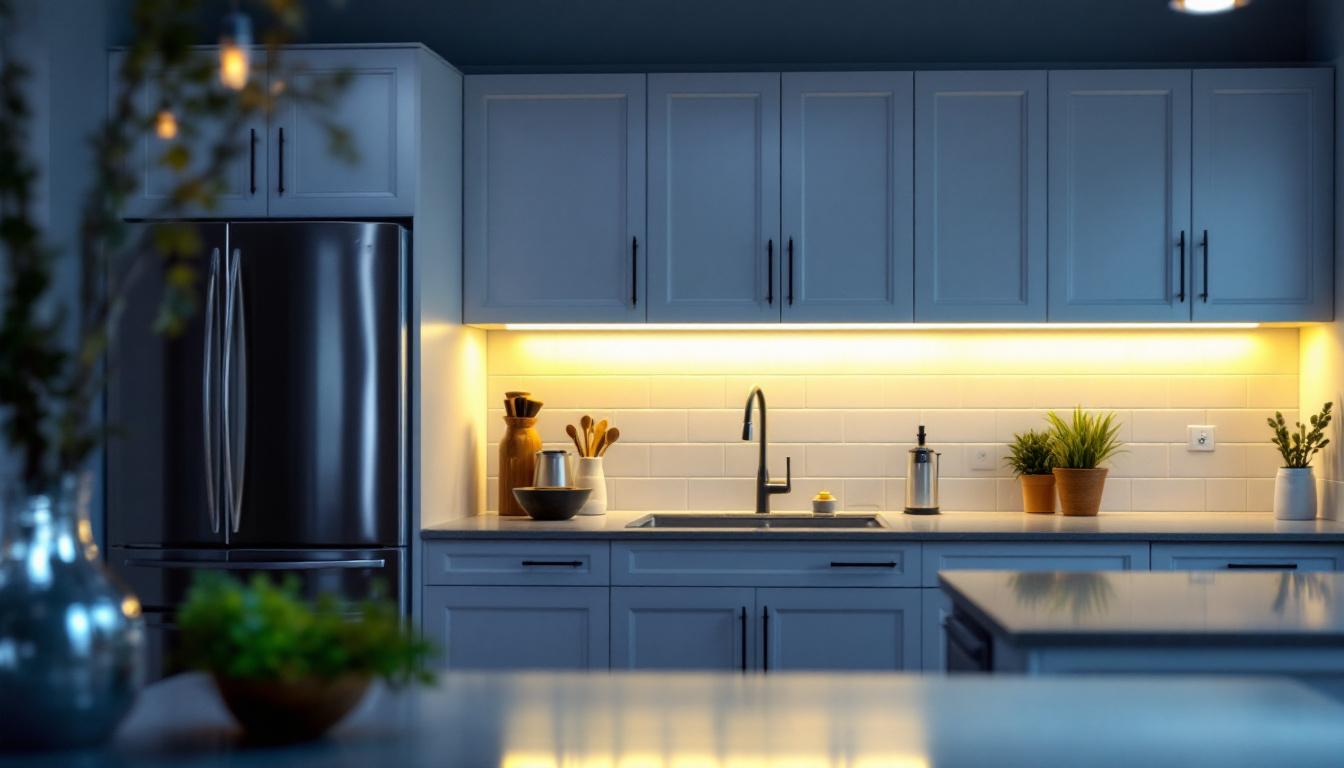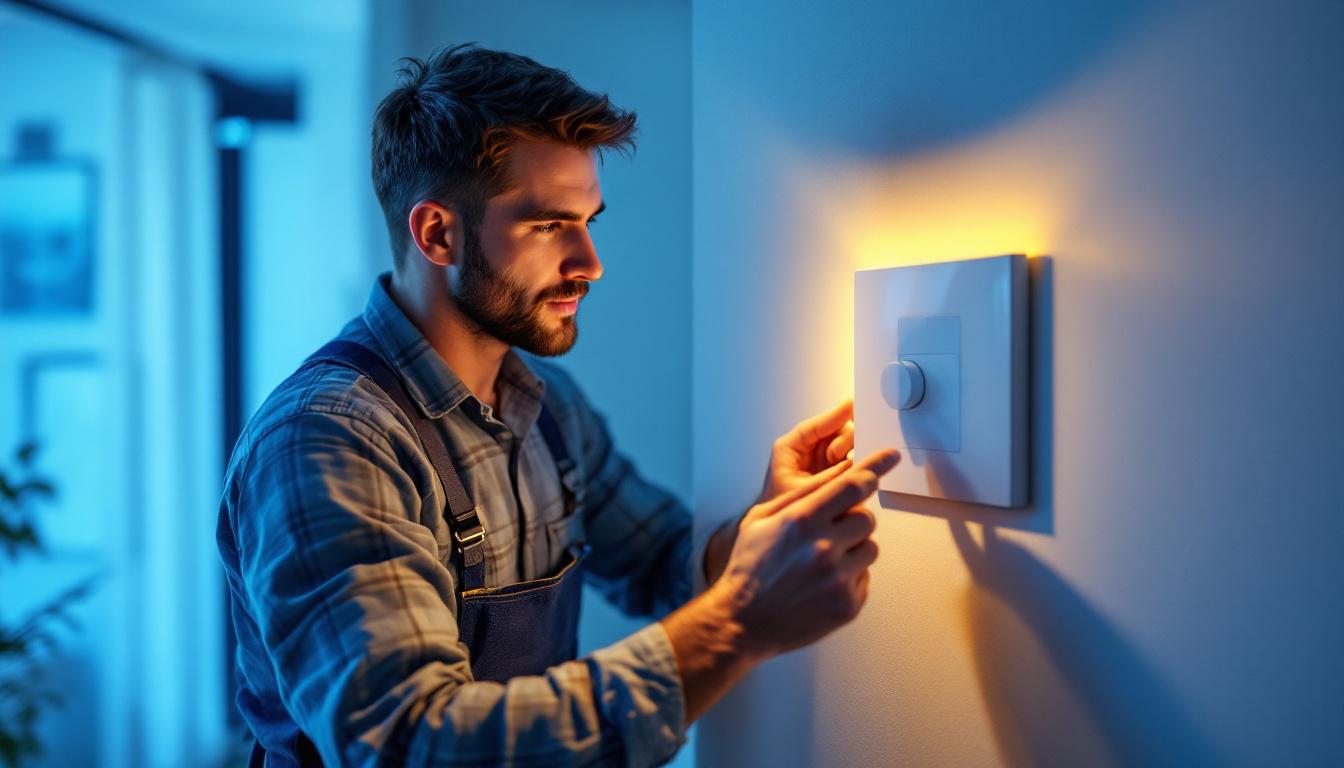
In the ever-evolving world of electrical fixtures and lighting design, staying ahead of trends and technologies is crucial for contractors. Future-proofing lighting projects not only enhances the quality of installations but also ensures longevity and adaptability in various environments. This article delves into the essential strategies and considerations for contractors aiming to future-proof their lighting projects.
Future-proofing involves designing systems that can adapt to changes in technology, regulations, and user preferences. For lighting contractors, this means selecting fixtures and systems that are not only efficient today but can also accommodate tomorrow’s innovations.
As the demand for energy-efficient solutions grows, understanding the implications of future-proofing becomes paramount. It allows contractors to offer clients sustainable options that can save on energy costs while also meeting evolving aesthetic and functional needs.
The rapid pace of technological advancements in lighting—such as LED technology, smart lighting systems, and IoT integration—demands that contractors remain informed. By selecting fixtures that are compatible with emerging technologies, contractors can ensure that their installations remain relevant and effective.
For instance, incorporating smart lighting controls can significantly enhance the functionality of a space. These systems allow for remote operation, energy monitoring, and integration with other smart home devices, providing both convenience and efficiency. Additionally, the ability to customize lighting settings based on user preferences or time of day can create a more dynamic and enjoyable environment, whether in residential or commercial settings.
Furthermore, the rise of data analytics in lighting design is transforming how contractors approach their projects. By leveraging data collected from smart lighting systems, contractors can gain insights into usage patterns, enabling them to optimize energy consumption and improve overall system performance. This data-driven approach not only enhances the user experience but also supports long-term maintenance and operational efficiency.
As governments and organizations push for more stringent energy efficiency standards, compliance becomes a critical factor in lighting design. Contractors must stay abreast of local codes and regulations to ensure that their projects meet current and future requirements.
Moreover, sustainability is no longer just a trend; it is a necessity. Future-proofing lighting projects involves selecting fixtures that not only comply with regulations but also minimize environmental impact. This includes choosing energy-efficient LEDs, utilizing recyclable materials, and implementing designs that reduce waste.
In addition to regulatory compliance, contractors can also explore innovative practices such as using solar-powered lighting solutions or integrating daylight harvesting techniques. These approaches not only enhance the sustainability of a project but can also lead to significant cost savings over time. By harnessing natural light and renewable energy sources, contractors can create lighting systems that are both environmentally friendly and economically viable, appealing to a growing market of eco-conscious clients.
The selection of fixtures plays a pivotal role in the future-proofing process. Contractors should consider a range of factors, including energy efficiency, adaptability, and aesthetics, when choosing lighting solutions. The right fixtures not only illuminate a space but also contribute to the overall ambiance and functionality of an environment, making it imperative for contractors to stay informed about the latest trends and technologies in lighting design.
Investing in high-quality fixtures that are built to last can significantly reduce the need for replacements and repairs, ultimately saving time and resources. Additionally, fixtures that offer versatility in design can accommodate changing tastes and preferences over time. This foresight can be particularly beneficial in commercial settings, where the demands of the space may evolve, requiring a different lighting approach to suit new uses or layouts.
Energy-efficient fixtures, particularly LEDs, are becoming the standard in modern lighting design. They consume significantly less energy than traditional incandescent bulbs and have a longer lifespan, which translates to lower maintenance costs and reduced environmental impact. Furthermore, the integration of smart technology with these fixtures allows for enhanced control over lighting systems, enabling users to adjust brightness and color temperature according to their needs, which can lead to even greater energy savings.
When selecting fixtures, it is essential to consider their energy ratings and the potential for future upgrades. For example, fixtures that allow for retrofitting with new technologies can extend their usefulness and adaptability. This is especially important in a rapidly evolving technological landscape, where new innovations in lighting, such as tunable white LEDs and connected smart lighting systems, are continuously emerging. By choosing fixtures that can accommodate these advancements, contractors can ensure that their installations remain cutting-edge for years to come.
Design versatility is crucial for future-proofing lighting projects. Fixtures that can blend seamlessly into various architectural styles and environments provide flexibility for contractors and clients alike. This adaptability ensures that lighting solutions remain relevant as design trends evolve. For instance, fixtures that can be easily customized or come in a variety of finishes can cater to both contemporary and traditional aesthetics, making them suitable for a wide range of projects.
Moreover, aesthetic appeal should not be overlooked. Clients often seek lighting solutions that enhance the beauty of their spaces. By offering a range of stylish and modern fixtures, contractors can meet diverse client needs while ensuring that the installations remain timeless. Additionally, incorporating unique design elements, such as artistic light sculptures or fixtures that double as statement pieces, can elevate a space’s overall design, making it a focal point rather than just a functional necessity. This approach not only satisfies client preferences but also adds value to the property, creating an environment that is both inviting and visually striking.
Smart lighting technology is revolutionizing the way spaces are illuminated. By integrating smart systems into lighting projects, contractors can future-proof their installations and provide clients with enhanced control and efficiency.
Smart lighting allows for automation, remote access, and customization, enabling users to adjust lighting settings based on their preferences and activities. This level of control not only improves the user experience but also contributes to energy savings.
As smart home technology becomes increasingly popular, ensuring that lighting fixtures are compatible with various smart home systems is crucial. This compatibility allows for seamless integration and enhances the overall functionality of the lighting system.
Contractors should consider offering fixtures that can connect with popular smart home platforms, allowing clients to control their lighting through voice commands or mobile apps. This added convenience can be a significant selling point for potential clients.
Incorporating energy monitoring capabilities into lighting systems can provide valuable insights into energy consumption. By utilizing smart technology, contractors can help clients track their energy usage and identify opportunities for savings.
Energy management systems can also automate lighting schedules based on occupancy or time of day, further optimizing energy efficiency. This proactive approach not only benefits the environment but also enhances the overall value of the lighting project.
Future-proofing lighting projects requires a forward-thinking approach that emphasizes flexibility and adaptability. As client needs evolve, lighting systems should be designed to accommodate changes without requiring complete overhauls.
Contractors can achieve this by implementing modular designs that allow for easy upgrades and modifications. This approach not only saves time and resources but also ensures that lighting systems can evolve alongside technological advancements and changing user preferences.
Modular lighting systems are an excellent solution for future-proofing. These systems consist of interchangeable components that can be easily replaced or upgraded as needed. This flexibility allows contractors to adapt to new technologies or design trends without the need for extensive renovations.
By offering modular solutions, contractors can provide clients with the assurance that their lighting systems can evolve over time, making them a more attractive option for long-term investments.
As businesses and residential spaces grow, the demand for scalable lighting solutions becomes evident. Contractors should consider the potential for future expansion when designing lighting systems, ensuring that they can accommodate additional fixtures or controls as needed.
Scalable designs not only enhance the functionality of a space but also provide clients with peace of mind, knowing that their lighting systems can grow alongside their needs.
While contractors play a vital role in future-proofing lighting projects, educating clients about the benefits and importance of these strategies is equally essential. Clients who understand the value of future-proofing are more likely to invest in quality solutions that will serve them well in the long run.
Providing clients with information on energy efficiency, smart technology, and the advantages of modular systems can empower them to make informed decisions. This education not only enhances client satisfaction but also positions contractors as knowledgeable experts in the field.
One of the most compelling arguments for future-proofing lighting projects is the potential for long-term cost savings. By investing in energy-efficient fixtures and smart technology, clients can significantly reduce their energy bills over time.
Contractors should present clients with data and case studies that illustrate the financial benefits of future-proofing. This information can help clients see the value in choosing quality solutions that may have a higher upfront cost but will pay off in the long run.
Showcasing successful past projects can be an effective way to demonstrate the benefits of future-proofing. By sharing case studies that highlight the advantages of energy-efficient, smart, and modular lighting systems, contractors can build trust and credibility with potential clients.
Visual examples of well-executed projects can inspire clients and help them envision the possibilities for their own spaces. This approach not only enhances client engagement but also reinforces the contractor’s expertise in future-proofing lighting solutions.
Future-proofing lighting projects is essential for contractors looking to stay competitive in a rapidly changing industry. By understanding the importance of adaptability, selecting the right fixtures, integrating smart technology, and planning for flexibility, contractors can create lighting solutions that meet both current and future needs.
Educating clients on the benefits of future-proofing not only enhances their satisfaction but also positions contractors as trusted advisors in the field. As the lighting industry continues to evolve, embracing these strategies will ensure that contractors remain at the forefront of innovation and excellence.
In conclusion, the journey to future-proof lighting projects is not just about keeping pace with technology; it is about anticipating change and designing systems that will thrive in the face of it. By adopting a proactive approach, contractors can create lasting value for their clients and themselves.
Ready to elevate your lighting projects and stay ahead of the curve? At LumenWholesale, we provide you with the cutting-edge, spec-grade lighting products you need to future-proof your installations. With our unbeatable wholesale prices and commitment to quality, you can confidently meet the highest industry standards without breaking the bank. Say goodbye to middleman markups and hello to hassle-free bulk buying with free shipping. Don’t compromise on quality or value—choose LumenWholesale for Wholesale Lighting at the Best Value and light up your projects with excellence and affordability.

Discover the essentials of pendant linear lighting with our comprehensive guide tailored for lighting contractors.

Discover how 12V under cabinet lights can transform your lighting projects and elevate your business.

Discover top strategies for LED light dimmer switches that lighting contractors trust.

Discover how big wall lights can revolutionize the lighting industry by cutting costs for contractors.